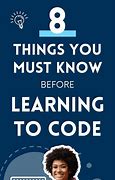
Navigating the Digital Landscape: Essential Online Safety Tips
The internet, a vast and ever-expanding digital landscape, connects us to a world of information & opportunities. From social media to online shopping & even accessing our bank accounts, we rely on the internet for almost everything. But, as we embrace its convenience, it’s crucial to remember that this digital world also presents certain risks. Staying safe online is no longer an option – it’s a necessity.
Imagine a world where your personal data is stolen, your finances are compromised, or you fall victim to online scams. These are not mere hypotheticals – they are realities that many people experience. That’s why understanding & implementing effective online safety practices is paramount in this age of digital connectivity.
This guide is your roadmap to navigating the digital landscape with confidence & security. We’ll cover essential tips & best practices, helping you:
- Protect your personal information: From strong passwords to securing your devices, we’ll empower you to shield yourself from online threats.
- Avoid online scams & phishing attempts: We’ll equip you with the tools to spot & evade these online traps, protecting your finances & data.
- Promote a healthy online presence: Learn how to control your online reputation, safeguard your privacy, & maintain a positive digital footprint.
Related Post : Trending Now: Apps Set to Transform Your Travel Experience
By adopting these safety practices, you can enhance your online experience, protect yourself from harm, & enjoy the many benefits the internet offers. So, let’s delve into the world of digital safety & make the online landscape a safer place for everyone.
Navigating the Digital Landscape: Essential Online Safety Tips
The digital landscape is constantly evolving, presenting both exciting opportunities and potential dangers. As we increasingly rely on technology for communication, entertainment, and even our livelihoods, it’s crucial to prioritize online safety. This article will delve into the evolving digital landscape, explore the importance of online safety, and offer essential tips for navigating this complex world.
The Ever-Evolving Digital Landscape
What is the digital landscape?
The digital landscape encompasses all facets of the online world, including websites, social media platforms, apps, online services, and the internet itself. It’s a vast and ever-changing environment, constantly being reshaped by technological advancements and user behavior.
How has the digital landscape changed over time?
The digital landscape has evolved dramatically since its inception. Early internet use was primarily text-based and limited to a few specific platforms. Today, the internet is a multimedia experience, with high-speed connections, mobile accessibility, and a plethora of platforms catering to diverse interests. The rise of social media, e-commerce, and cloud computing has further transformed the digital landscape, creating a highly interconnected and dynamic environment.
What are the key challenges of navigating the digital landscape?
The evolving digital landscape presents several challenges, including:
- Information overload: The sheer volume of information available online makes it difficult to discern fact from fiction and can lead to misinformation and disinformation.
- Privacy concerns: As we share more personal information online, concerns about data privacy and security are growing.
- Cybersecurity threats: The boost in online activity has also led to a surge in cyberattacks, from phishing scams to malware infections.
- Digital divide: Access to technology and digital literacy varies significantly, creating a digital divide that can exacerbate existing inequalities.
Understanding Online Safety
Why is online safety crucial?
Online safety is paramount because it protects our personal information, financial security, and digital well-being. It ensures we can use the internet safely and responsibly, without fear of harm or exploitation.
What are the risks associated with being online?
The risks associated with being online are diverse and can include:
- Identity theft: Criminals can steal your personal information and use it to commit fraud or impersonate you.
- Cyberbullying and harassment: Online platforms can be breeding grounds for harassment, bullying, and other forms of abuse.
- Malware infections: Viruses and other malicious software can damage your devices, steal your data, or spy on your activities.
- Phishing scams: Scammers can trick you into revealing sensitive information or giving them access to your accounts.
- Data breaches: Companies can suffer data breaches, compromising the personal information of their users.
Who are the threats to online safety?
Threats to online safety can come from various sources, including:
- Hackers: Individuals who attempt to gain unauthorized access to computer systems or networks.
- Cybercriminals: Organized groups who engage in cybercrime for profit or malicious purposes.
- Scammers: Individuals who attempt to deceive people into giving them money or personal information.
- Governments and intelligence agencies: Some governments and intelligence agencies may engage in surveillance or data collection activities.
Essential Online Safety Tips
Protecting Your Personal Information
How to create strong passwords and avoid common password mistakes
- Use a unique password for each of your online accounts.
- Create passwords that are at least 12 characters long and include a mix of uppercase and lowercase letters, numbers, and symbols.
- Avoid using common words, personal information, or sequences of numbers as passwords.
- Don’t write your passwords down or share them with anyone.
- Use a password manager to store your passwords securely.
Tips for protecting your personal information on social media
- Be mindful of what information you share on social media.
- Review your privacy settings and adjust them to limit who can see your posts and information.
- Avoid oversharing personal details, such as your address, birthday, or financial information.
- Be cautious about accepting friend requests from stscopers.
- Think twice before posting anything online that you wouldn’t want your employer or family to see.
optimal practices for securing your online accounts
- Enable two-factor authentication whenever possible.
- Use strong passwords and avoid reusing the same password across multiple accounts.
- Keep your software and operating systems up to date.
- Be wary of suspicious emails and links.
- Monitor your accounts for unusual activity.
Safeguarding Against Cyberattacks
What are cyberattacks?
Cyberattacks are malicious attempts to damage, disrupt, or gain unauthorized access to computer systems or networks. They can take various forms, including phishing scams, malware infections, denial-of-service attacks, and ransomware.
How to determine phishing scams and other malicious attacks
- Be cautious of emails or messages from unknown senders.
- Verify the legitimacy of any websites before entering sensitive information.
- Look for typos or grammatical errors in emails and messages.
- Hover over links before clicking on them to see where they actually lead.
- Don’t click on links or attachments from suspicious sources.
How to protect your devices from malware
- Install a reputable antivirus program and keep it updated.
- Be careful about what websites you visit and what files you download.
- Avoid clicking on pop-up ads or downloading software from untrusted sources.
- Use a firewall to protect your devices from unauthorized access.
Being Smart About Social Media
Privacy settings on social media platforms
- Review the privacy settings on all your social media accounts and adjust them to your comfort level.
- Limit who can see your posts and information.
- Be careful about what information you share publicly.
Avoiding oversharing personal information
- Avoid posting sensitive information, such as your address, phone number, or financial details.
- Be mindful of the information you share in your profile.
- Think twice before tagging yourself or others in photos and videos.
Being aware of fake accounts and scams
- Be skeptical of accounts that seem too good to be true or that promote unrealistic offers.
- Report any suspicious accounts or activity to the platform’s administrators.
- Avoid clicking on links or downloading files from unknown sources.
Navigating Online Communities
How to stay safe in online forums and chat rooms
- Be aware of the potential risks associated with online forums and chat rooms.
- Avoid sharing personal information, such as your home address or phone number.
- Be cautious about engaging with stscopers.
- Report any inappropriate or offensive text.
determineing and reporting inappropriate text
- Be aware of the varied types of inappropriate text, such as hate speech, harassment, or child exploitation.
- Report any inappropriate text to the platform’s administrators.
- Block users who engage in inappropriate behavior.
Protecting yourself from harassment and bullying
- Report any instances of harassment or bullying to the platform’s administrators.
- Block users who are harassing you.
- Avoid engaging with trolls or bullies.
- Take screenshots of any harassment or bullying as evidence.
Staying Informed and Up-to-Date
Keeping your software and devices up-to-date
- Install software updates as soon as they are available.
- Use a password manager to keep your passwords up-to-date.
- Back up your data regularly to protect it from loss or damage.
Being aware of emerging threats and scams
- Stay informed about the latest online threats and scams.
- Be skeptical of anything that seems too good to be true.
- Report any suspicious activity to the appropriate authorities.
Resources for online safety information
- The National Center for Missing and Exploited Children (NCMEC): https://www.missingkids.org
- The Federal Trade Commission (FTC): https://www.ftc.gov
- The Internet Crime Complaint Center (IC3): https://www.ic3.gov
- The National Cyber Security Alliance (NCSA): https://staysafeonline.org
Conclusion: Staying Safe in the Digital World
In today’s digital world, online safety is not just a suggestion, it’s a requirement. By being proactive, staying informed, and implementing the tips outlined in this article, you can navigate the digital landscape safely and confidently. It’s crucial to remember that the digital world is constantly evolving, so ongoing education and awareness are essential for protecting yourself from emerging threats.
Stay vigilant, adapt to the changing landscape, and embrace the opportunities while minimizing the risks. Remember, online safety is everyone’s responsibility.



